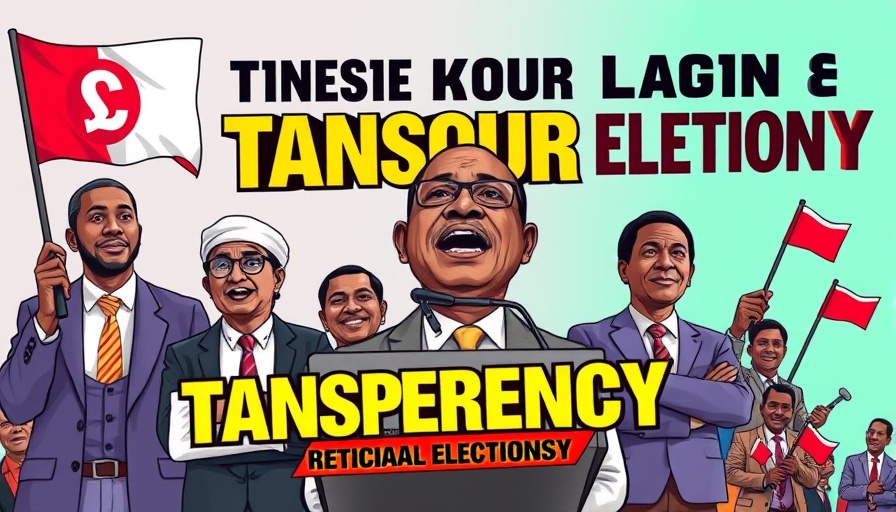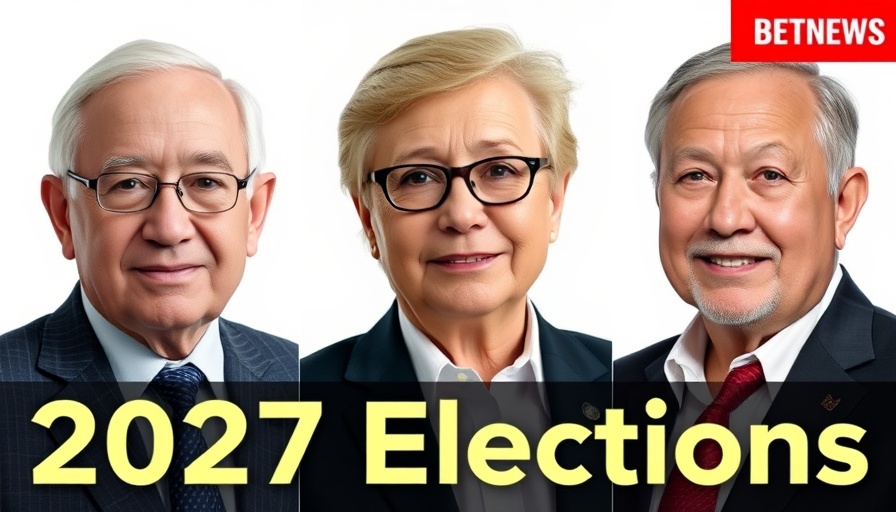
The Labour Party's Discontent with Electoral Commissions
The Labour Party in Lagos State finds itself embroiled in serious allegations against two pivotal electoral bodies: the Lagos State Independent Electoral Commission (LASSIEC) and the Independent National Electoral Commission (INEC). In an environment already charged with suspicion and tension, the Labour Party claims that these bodies are acting in bad faith, jeopardizing a fair electoral process as the local government elections approach.
In Labour Party Accuses LASIEC, INEC of Electoral Compromise, the discussion highlights serious allegations against electoral commissions, prompting a deeper analysis of ongoing political integrity issues.
A Chronology of Disputes
The timeline of events resulting in these accusations is convoluted yet revealing. The chaos began on May 5 when the Labour Party’s national working committee sent formal communication to INEC, delineating the establishment of a new caretaker committee. The subsequent attempts to engage with both LASSIEC and INEC were met with inertia; the electoral bodies hesitated to validate these changes and instead seemed to entertain the claims of rival factions within the party, factions that had already been dismissed by the Supreme Court.
Rotimi Odonis, Chairman of the Labour Party Caretaker Committee in Lagos, articulated the party's concerns during an intense discussion on media platforms. He stressed that LASSIEC's decision to sell nomination forms to a faction considered illegitimate, following a Supreme Court ruling, evokes questions of integrity and legality. Odonis argues vehemently for clarity and cautions that unless these critical issues are resolved, candidates may find themselves disenfranchised come election day.
The Implications of Electoral Compromise
Election integrity is of paramount importance, especially within a political environment plagued by factional disputes and power struggles. Odonis highlighted a condition where LASSIEC and INEC could create a precedent for disenfranchisement by endorsing leaders who lack legitimacy, thereby threatening the political aspirations of grassroots candidates dedicated to change. These allegations raise not only questions about the competency of these electoral bodies but also their commitment to facilitating a democratic process that directly affects citizens' lives.
Political Turbulence: Reality or Misinformation?
As with any political saga, speculation abounds. Observers might wonder if there are agents from rival parties embedded within the Labour Party, sowing discord for their own gain. While Odonis refrained from definitively identifying such individuals, he underscored the critical need for unity within the Labour Party. The vibrant momentum the party enjoyed during previous elections, referred to as a 'political tsunami,' is at risk of waning if internal cohesion does not improve.
The Road Forward: A Call for Governance Over Politics
The fundamental issues Odonis raised go beyond mere electoral mechanics; they speak directly to governance and law. He expressed a clear desire for electoral bodies to focus on the rule of law rather than engaging in political machinations that undermine democratic processes. For citizens, the implications of these allegations are significant. They have a right to expect fair practices and legitimate representation within elected offices.
The Bigger Picture: The Landscape of African Politics
This dispute is a microcosm of the wider challenges faced across the African continent regarding electoral integrity and political governance. Across many nations, disparities exist where parties struggle with legitimacy, factions vie for control, and citizens remain wary of the true representatives of their interests. Without remedy—building trust through transparent governance—these issues will continue to plague young democracies in Africa.
Conclusion: The Need for Clarity
In this period leading to local elections scheduled for July 12, the Labour Party, along with voters in Lagos, will be looking toward LASSIEC and INEC for reassurance that their electoral rights will not be trampled by internal factions or inadvertent incompetence. The unfolding events necessitate that a collective responsibility be taken—to clarify and uphold the integrity of elections, thus providing citizens with the rightful representation they demand and deserve.
Integral to the discussion is not just the reform in political practices but engaging with citizens who should be encouraged to hold their leaders accountable amidst these challenges. The future of political engagement in Lagos and indeed across the African region hinges on these precarious dynamics. As the Labour Party battles for clarification and legitimacy, it is a reminder that governance must always take precedence over mere politics.
 Add Row
Add Row  Add
Add 


Write A Comment